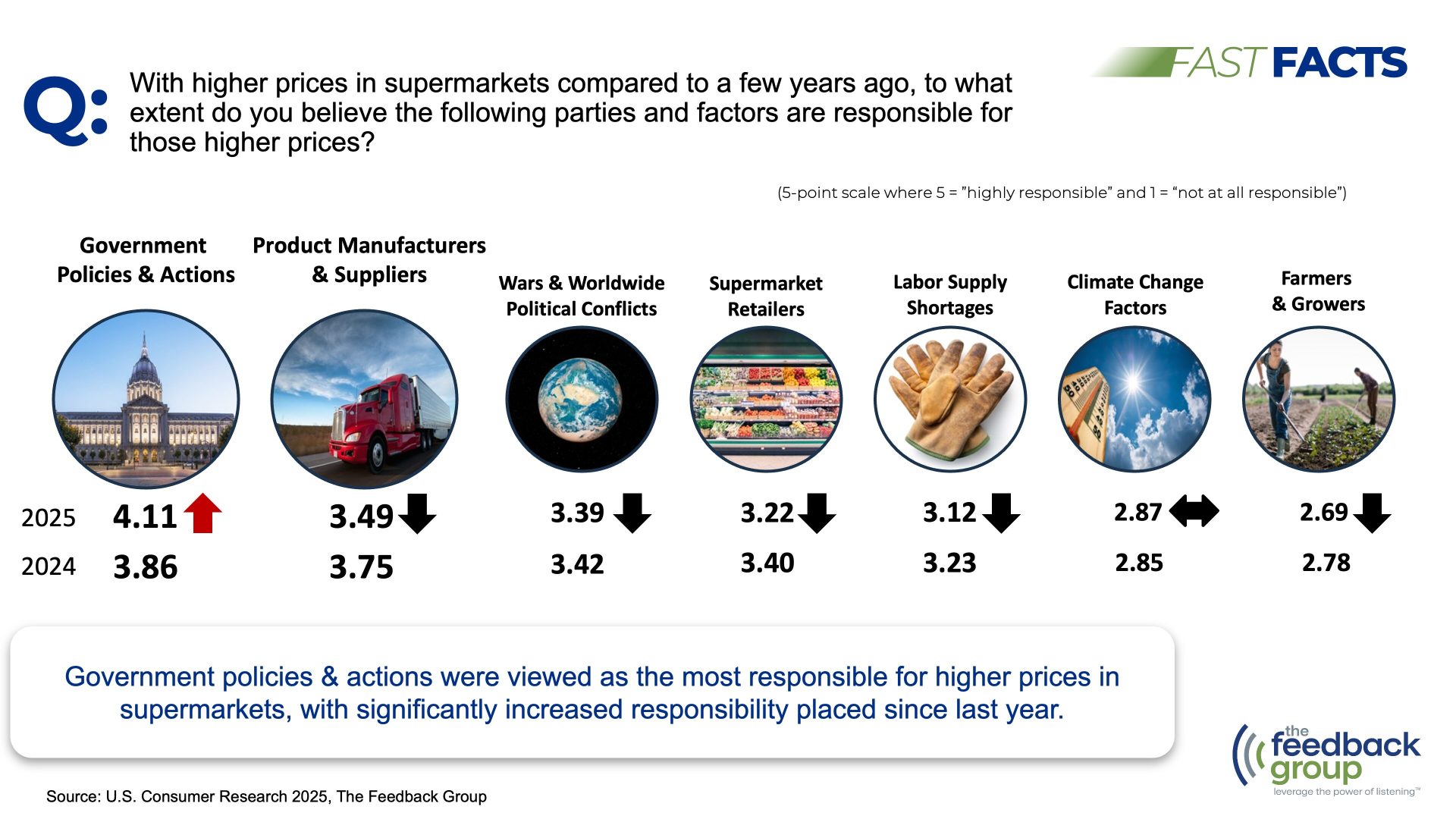The Feedback Group has released findings from its latest national research study, “Supermarket Shoppers: Rising Prices, Inflation and Tariffs.”
The study found that 61 percent of U.S. supermarket shoppers report feeling stressed about rising grocery prices. This stress is especially pronounced among younger and middle-age shoppers – Generation X (70 percent), Millennials (67 percent) and Gen Z (65 percent).
Reflecting this tension, shoppers continue to adapt, employing a range of inflation-fighting strategies. Top tactics include buying more items on sale (62 percent), eating more often at home (50 percent), buying more store brands (42 percent) and using a store’s weekly sales flyer (40 percent).

“Shoppers are clearly under pressure, and the emotional toll of rising grocery prices is visible across the generations,” said Doug Madenberg, chief listening officer at The Feedback Group. “Our research underscores the balancing act many consumers face in the supermarket aisle today.”
When asked about the factors contributing to higher supermarket prices, shoppers pointed to government policies and actions as the most responsible (mean score 4.11 on a 5-point scale), a notable increase from 3.86 in 2024.
Factors following government policies and actions were product manufacturers and suppliers (3.49), wars and worldwide conflicts (3.39) and supermarket retailers (3.22). Farmers and growers were viewed as least responsible (2.69).
“Consumers continue to believe that external factors – particularly government policy and suppliers – are driving price hikes more than the supermarkets themselves. These perceptions are intensifying over time,” said Brian Numainville, principal at The Feedback Group
The study found that 95 percent of shoppers were already aware of proposed tariffs before being surveyed. Among tariff-aware shoppers, many expressed concern that tariffs would impact their grocery bills, with nearly half (47 percent) saying they were “very concerned.” A majority (83 percent) expect tariffs to increase prices – 49 percent believe prices will rise significantly and 34 percent somewhat.
[RELATED: Study Finds Consumers Cutting Grocery Spend Due To Tariff Concerns]
Shoppers expect a broad range of categories will be affected by tariff-related price hikes, most notably international and imported foods (88 percent), followed by fruits and vegetables (79 percent), household items (67 percent), packaged or processed foods (65 percent) and meat and poultry (63 percent).
If tariffs lead to higher prices, shoppers say they are most likely to switch to store brand or lower-cost items (41 percent), use more coupons or promotions (35 percent) or buy fewer groceries overall (34 percent). Notably, eight in 10 shoppers believe private label prices and quality compare well to national brands.
While most shoppers remain satisfied with their overall supermarket experience, the research reveals a communication gap. Shoppers gave supermarkets relatively low ratings for being on their side when it comes to inflation (3.34), explaining price increases (2.97) and discussing tariff impacts (2.46).
As a result, shoppers continue to overestimate supermarket profits, believing them to be, on average, at 30 percent when the reality is net profit margins actually register in the 1-3 percent range. This perception has persisted for years.
“Supermarkets have an opportunity to enhance transparency with their shoppers,” Madenberg and Numainville concluded. “Clearer communication around price drivers can help rebuild trust during uncertain economic times.”
The research findings are available to supermarket retailers, distributors and food industry companies.


